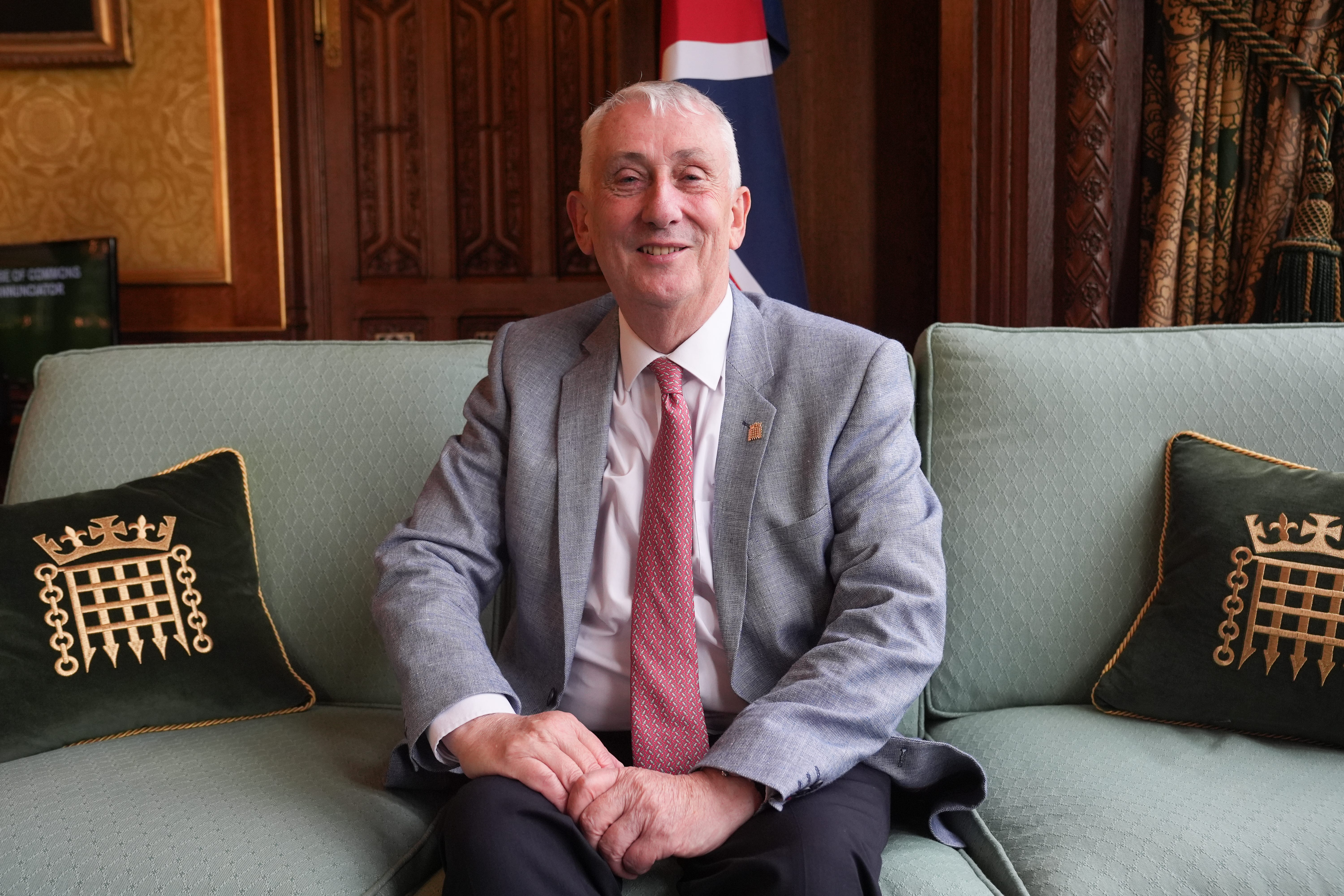MP critics should stand at election rather than use ‘bovver boy’ tactics – Hoyle
The Commons Speaker is exploring the possibility of establishing a Speaker’s conference to assess security matters for politicians.

Your support helps us to tell the story
From reproductive rights to climate change to Big Tech, The Independent is on the ground when the story is developing. Whether it's investigating the financials of Elon Musk's pro-Trump PAC or producing our latest documentary, 'The A Word', which shines a light on the American women fighting for reproductive rights, we know how important it is to parse out the facts from the messaging.
At such a critical moment in US history, we need reporters on the ground. Your donation allows us to keep sending journalists to speak to both sides of the story.
The Independent is trusted by Americans across the entire political spectrum. And unlike many other quality news outlets, we choose not to lock Americans out of our reporting and analysis with paywalls. We believe quality journalism should be available to everyone, paid for by those who can afford it.
Your support makes all the difference.Sir Lindsay Hoyle has challenged critics of MPs to stand against them at the next election rather than pursue “bovver boy politics of intimidation”.
The Commons Speaker said he hopes MPs will showcase a “nicer Parliament” rather than abuse each other, which in turn will encourage voters to show greater respect to them.
Sir Lindsay is also exploring the possibility of establishing a Speaker’s conference to assess security matters for politicians and put forward recommendations, amid renewed concerns over MP safety following the General Election.
Such conferences are rarely used and are viewed as a way to find cross-party agreement on a subject.
Speaking ahead of the State Opening of Parliament on Wednesday, Sir Lindsay told the PA news agency: “This is a new Parliament, this is a new beginning.”
He noted the “plates have shifted” following the election, given the changing state of the parties, adding: “I want a Parliament that I can be proud of, I really do want a Parliament that takes the job seriously.”
Sir Lindsay said he believes in having a Parliament that “actually respects other people’s views”, adding: “We’ve got to learn. I don’t want people to agree as I’d have the most boring Parliament, far from it.
“I want people to respect an opinion which is not the same. The fact that we work together, we need to showcase this Parliament as why we’re renowned around the world for our democracy and people copy the Westminster model, but you don’t want to copy bad practice, you want people to copy good practice and that’s what I want to see out of this Parliament.
“And when we abuse each other, we shout and bawl people down, don’t be surprised when the public do exactly the same to us.
“By us showing and being a nicer Parliament, I then expect constituents to show respect and tolerance to the Member of Parliament and actually recognise that they’ve put themselves forward, it is their community that’s elected them.
“If you don’t like the person that’s been elected, stand against them at the next election. We do it through the ballot box, not through bovver boy politics of intimidation.”
The Speaker noted MPs make the rules and he is there to enforce them, when asked about frustrations expressed over the curbs on MPs calling out lies in the Commons.
He said: “We could argue that the Ministerial Code is not fit for purpose, it needs modernising, it needs to be looked at.
“The fact is that we want the best out of MPs, we want the best out of ministers. I hope the Ministerial Code is never needed to be used again.
“But if it has to be used it has to be fit for purpose.”
Asked about possible changes, Sir Lindsay laughed and replied: “I’m going outside my comfort zone, I’m going to be careful that I’m not standing on somebody else’s toes.”
He added: “It’s about moving government forward and moving Parliament forward in a way that people say, ‘Actually, I respect what they’ve done, I understand what they’ve done and actually I now believe in democracy’, and that’s what we’ve got to do.
“We’ve had too many people who were turned off from politics, we’ve got to turn people back on to politics and I think by being the best example is the way people will re-engage in the political future of this country.”